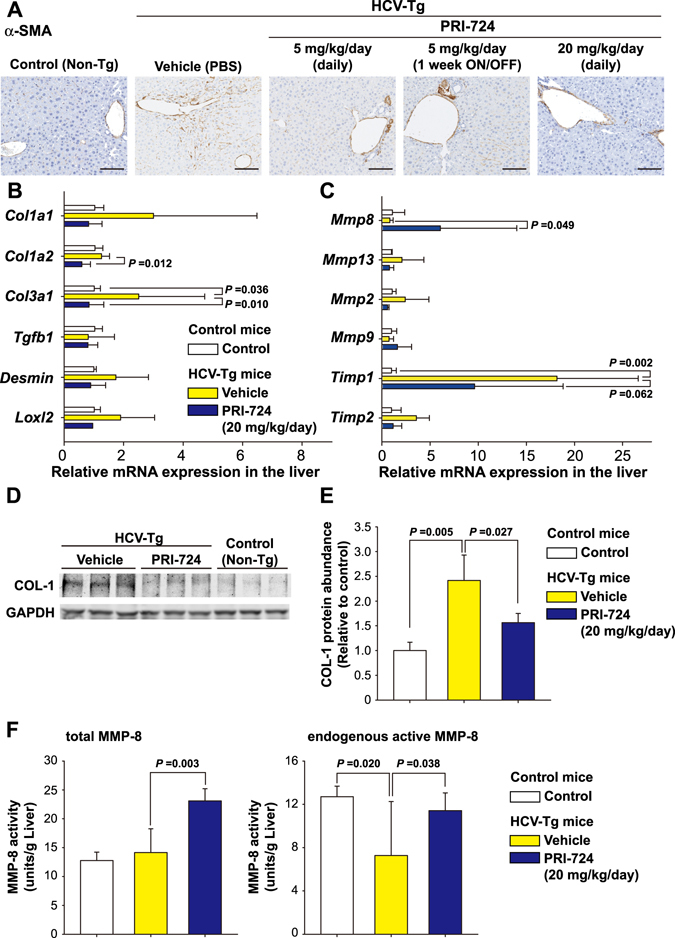Figure 2.

PRI-724 inhibits hepatic stellate cell (HSC) activation and induces matrix metalloproteinase-8 (MMP-8) expression. HCV transgenic mice were treated intraperitoneally with vehicle or PRI-724 once per day for 42 days at a dose of 5 or 20 mg/kg body weight or 1 week ON/OFF at a dose of 5 mg/kg body weight for 6 weeks (total of three cycles, each consisting of 1 week of once-daily dosing followed by 1 week without dosing) (Fig. 1A). Undosed non-trangenic mice were used as controls. (A) Expression of αSMA was examined by immunohistochemistry with anti-αSMA antibody; representative micrographs are provided (scale bars = 200 μm). (B,C) The liver expression of the indicated mRNA variants involved in collagen synthesis and maturation (B) or in collagen degradation (C) was determined by quantitative real-time RT-PCR in livers from non-transgenic control mice (white) or from HCV transgenic mice treated with vehicle (yellow) or with PRI-724 (20 mg/kg, once daily) (blue). Data are shown as the mean ± SD (control: n = 6; vehicle: n = 4; PRI-724 (20 mg/kg, daily): n = 4). (D,E) Expression of type I collagen (Col-1) in the livers of mice from the indicated groups was analyzed by western blotting. Densitometry was performed to define band density of (D), and values were normalized to GAPDH levels (E). Data are shown as the mean ± SD (control: n = 3; vehicle: n = 3; PRI-724 (20 mg/kg, daily): n = 3). Full length blots are included in Supplementary Information (Fig. S7). (F) Total MMP-8 (pro-MMP-8 plus active MMP-8) (left graph) and endogenous active MMP-8 (right graph) levels in the livers of mice from the indicated groups were assessed by measurement of collagenase activities against type II collagen. Data are shown as the mean ± SD (control: n = 4; vehicle: n = 4; PRI-724 (20 mg/kg, daily): n = 4). Significance was assessed by Dunnett’s multiple comparison test as indicated; significant relationships are indicated by P-values.
